MIT Executive Committee visits Tsinghua; Tsinghua University-MIT Executive Committee Strategy Roundtable held
On November 12th, the MIT Executive Committee, led by MIT President L. Rafael Reif and Robert B. Millard, Chairman of the MIT Corporation and Chair of the MIT Executive Committee, visited Tsinghua University. Tsinghua President Qiu Yong, Vice Presidents Xue Qikun, Yang Bin, Wang Xiqin, and Zheng Li, together with the Chairman of the Academic Committee of Tsinghua and Vice President of the National Natural Science Foundation of China Zhang Xi met and conducted in-depth exchanges and discussions with the delegation members. The Tsinghua University-MIT Executive Committee Strategy Roundtable was held the same day.
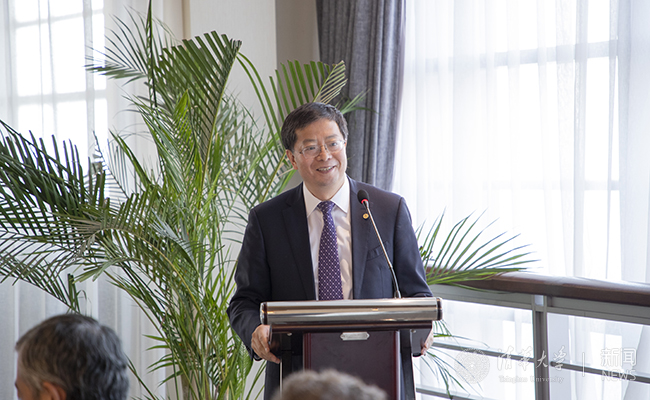
On behalf of Tsinghua University, President Qiu welcomed the members of the MIT Executive Committee. He said that Tsinghua has had a longstanding partnership and friendship with MIT. The two universities have carried out extensive cooperation in the fields of economics, management, computer science, architecture, engineering, medicine, and climate change. It is hoped that the two sides will further expand cooperation in more disciplines and fields on the basis of successful cooperation in the past.
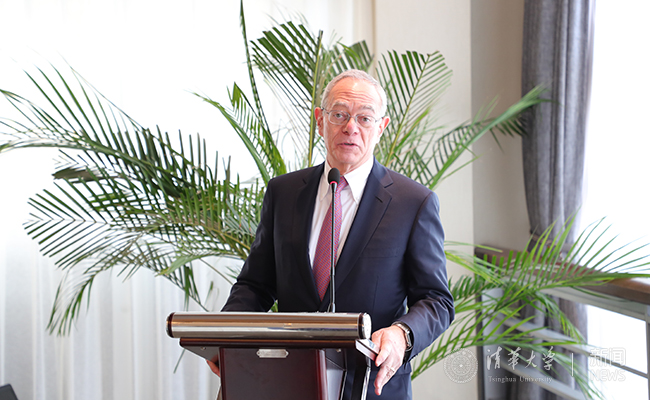
In response, MIT President, L. Rafael Reif, stated that the Executive Committee of MIT is delighted to be able to visit Tsinghua University. China has made great development achievements and MIT hopes to gain a deep understanding of China’s innovation, and entrepreneurship education in Chinese universities, and to promote further future cooperation between both universities.
In the afternoon, the Tsinghua University-MIT Executive Committee Strategy Roundtable was held in Tsinghua’s main building. Senior administrators of both MIT and Tsinghua met to discuss their recent achievements in education, research, international cooperation and future development.
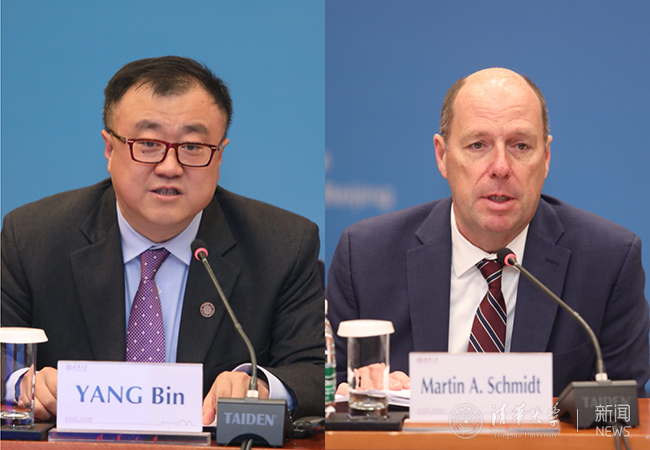
Tsinghua Vice President Yang Bin and MIT Provost Martin A. Schmidt introduced the participants of their respective universities at the beginning of the roundtable, hosted by Yang Bin.
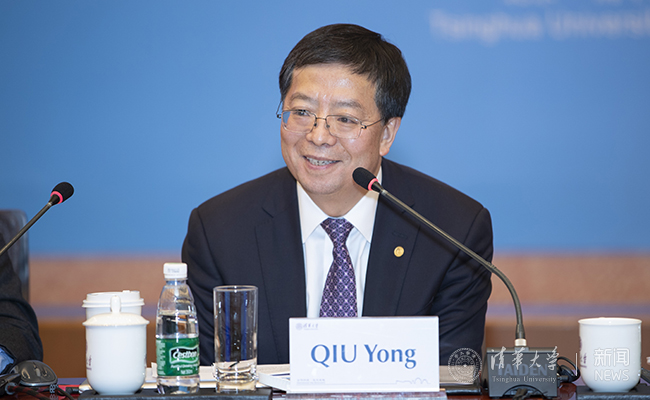
President Qiu made a speech entitled “Tsinghua: Heritage and Reform.” He pointed out that universities are evergreen institutions that pursue knowledge and truth in eternity. Tsinghua and MIT are both more than a hundred years old and both cherish their own heritage and constantly adjust themselves to respond to the needs of the age. He reviewed the special historical connections between Tsinghua and MIT, noting that Tsinghua was founded in 1911, 50 years after the establishment of MIT in 1861, and that both universities have a history of more than 100 years. The heads of the three engineering departments established by Tsinghua in 1932 all graduated from MIT. In December 2016, Tsinghua conferred the honorary doctorate of Tsinghua on President Rafael Reif. On behalf of Tsinghua, President Qiu Yong expressed his sincere welcome to President Rafael Reif on his return to Tsinghua once again.
“As we celebrate the 107th anniversary of Tsinghua this year, we are at a transitional phase from the first to the second century in the history of Tsinghua. At this critical turning point, we are reflecting upon our own history and heritage, and thinking about the next step; what should we cherish and what should we change?” asked President Qiu. He explained Tsinghua’s traditions and educational concepts around the two key words of “heritage” and “reform,” and introduced the reform initiatives and important achievements of Tsinghua in recent years. President Qiu noted that Tsinghua carried forward the fine tradition of attaching importance to faculty, and had established a tenure track system in the university. The new system encouraged a batch of young faculty to join Tsinghua, bringing fresh blood to the campus. Based on the university motto of “Self-discipline and Social Commitment,” and the Tsinghua spirit of “Actions Speak Louder Than Words”, Tsinghua proposed a new educational paradigm: the shaping of values, the cultivating of skills and the imparting of knowledge, while vigorously promoting education in innovation and entrepreneurship and focusing on general education. In scientific research, the university has a tradition of addressing the critical challenges of national priority, and now actively promotes interdisciplinary and cutting-edge research. In terms of international cooperation, Tsinghua launched its global strategy in 2016. Tsinghua highly values international cooperation and exchange with its partners around the world.
President Qiu remarked that in three years, Tsinghua University will celebrate its 110th anniversary and MIT will celebrate its 160th anniversary. He expressed the hope that the two universities can further deepen their cooperation in the coming years. Noting that this year marks the 930th anniversary of the birth of university, and in 70 years’ time, its millennium will be celebrated, President Qiu said, “I believe MIT and Tsinghua should join hands to welcome the upcoming millennium of the establishment of universities.”
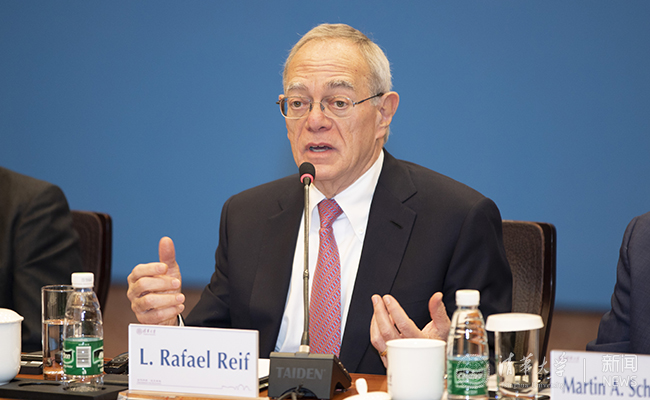
MIT President Rafael Reif introduced MIT’s students, Nobel Prize winners, alumni, innovation, technology transfer, cooperation and its engagement with industry.
Reviewing the close relationship between the two universities, both Presidents hoped to bring the two universities even closer together, respecting their heritage whilst also reforming to accommodate changing academic and social demands.
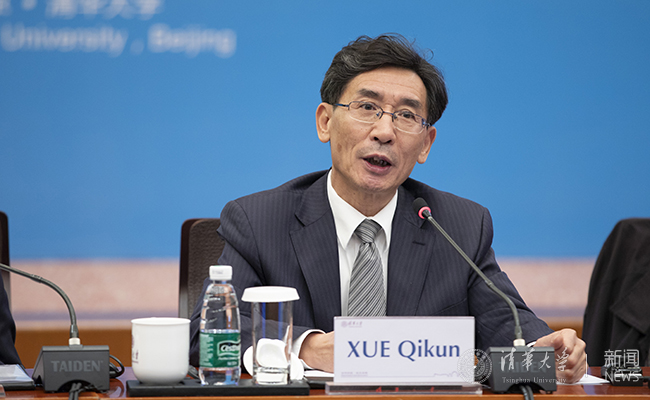
Entitled “Partnership and Collaboration for Innovation”, Tsinghua Vice President Xue Qikun outlined the recent research development and achievements of Tsinghua.
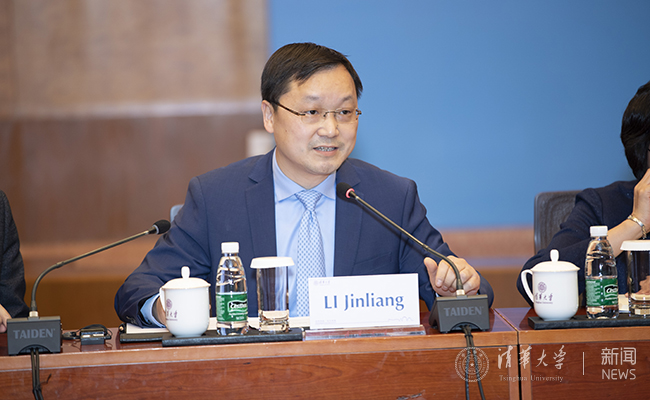
Li JinLiang, Dean of International Cooperation & Exchange, introduced the Global Strategy and international education at Tsinghua University.
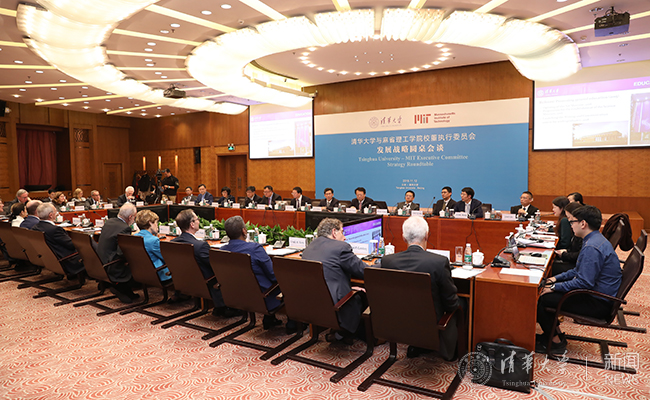
During the discussion session, the participants exchanged their views on issues, including future development strategy, AI, and big data.
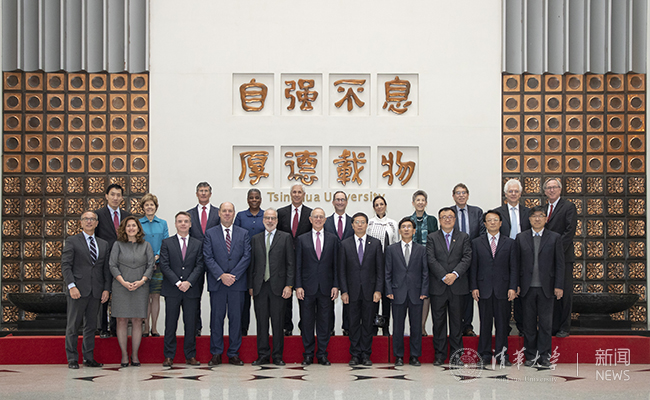
Members of the MIT Executive Committee also visited the Schwarzman College of Tsinghua University, the Tsinghua Science Park, and Tsinghua’s X-Lab. They also exchanged ideas with representatives of the alumni entrepreneurs of Tsinghua University.
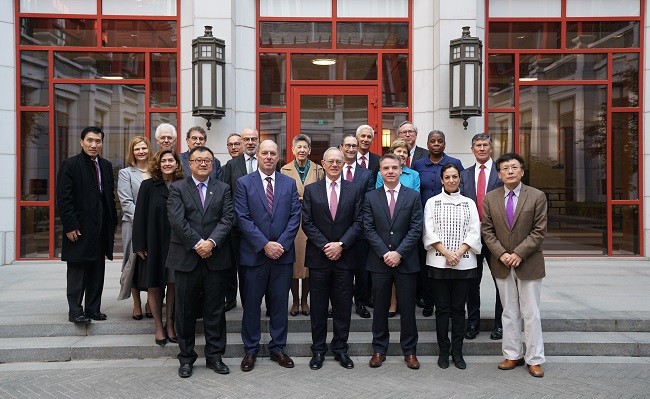
Writers: Celina Jiang, Holly Holdsworth
Editors: John Olbrich, Li Han, Guo Lili

